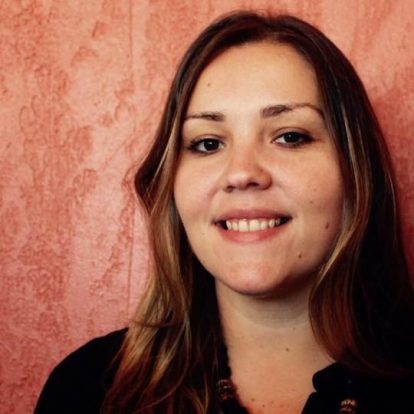Laura’s research, teaching, and community work is situated at the intersections of language diversity, community engagement, and technology design. Her first monograph, Sites of Translation: What Multilinguals Can Teach Us About Digital Writing and Rhetoric (University of Michigan Press, 2018) is both a print book and a webtext that illustrates the intricate rhetorical work that multilingual communicators engage in as they make information accessible for and with their communities. In addition to her monograph, Laura has published approximately 30 peer-reviewed articles, webtexts, and book chapters that reflect her commitment to culturally-sustaining and collaborative interdisciplinary research and digital making. Laura’s work has been featured in leading journals such as Technical Communication Quarterly, College Composition and Communication, The Journal of Usability Studies, Connexions International Professional Communication Journal, Technical Communication, and Kairos: A Journal of Rhetoric, Technology, and Pedagogy, among others. Most recently, Laura is making more purposeful connections between language accessibility and disability studies in the context of digital media. For example, her recent article in the December 2018 issue of Communication Design Quarterly, “Captioning for Intersectional Accessibility: An Ethnographic Case Study of Multilingual Technical Content Creation,” threads conversations about interdependent research methodologies through a disability studies perspective (e.g., Price & Kerchbaum, 2016) with Kimberlé Crenshaw’s (1989) framework of intersectionality to suggest that the designers and developers of digital media should more intricately engage with cultural rhetorics theories and methodologies to create intersectionally-accessible content that will reflect the diverse communicative strengths of contemporary audiences.
Stemming from this work, Laura is also working on a second monograph that threads theories of translation and community engagement with technology design, proposing what she calls “multilingual user experience” as an orientation to digital composing that centers racial and linguistic difference as assets that can productively influence the creativity and impact of digital technologies. This book is being developed through community-engaged, collaborative research with community members in El Paso, Texas, Kathmandu, Nepal, and Oaxaca City, Mexico.
Contact
- office: Turlington Hall
- voice:
- fax:
- email: <gonzalesl@ufl.edu>
- Professor Gonzales’ website
- Twitter: @gonzlaur
